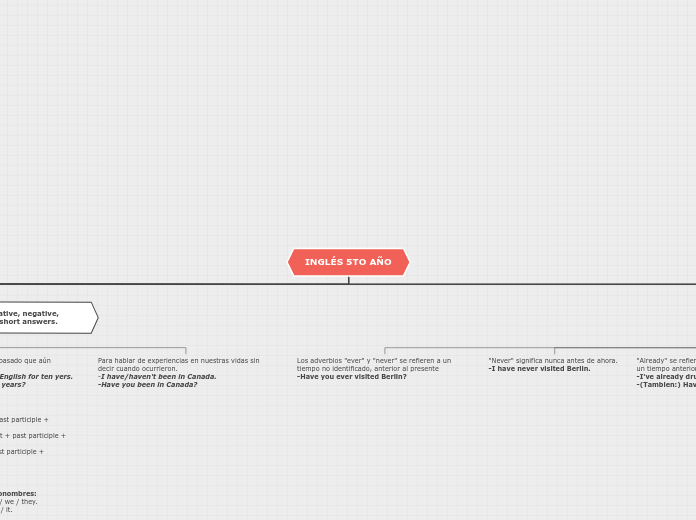av instrumentales sin copy för 5 årar sedan
508
Organigrama

av instrumentales sin copy för 5 årar sedan
508

Mer av detta
Todas estas expresiones se utilizan con el present perfect.
Pronouns/Pronombres: -Have: I / you / we / they. -Has: He / she / it.